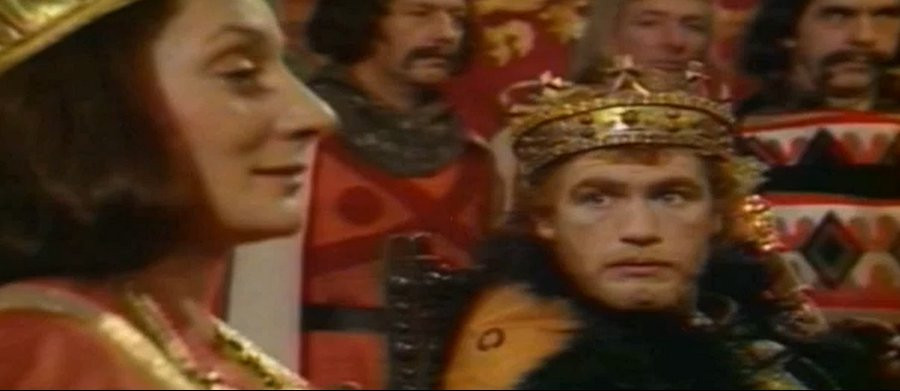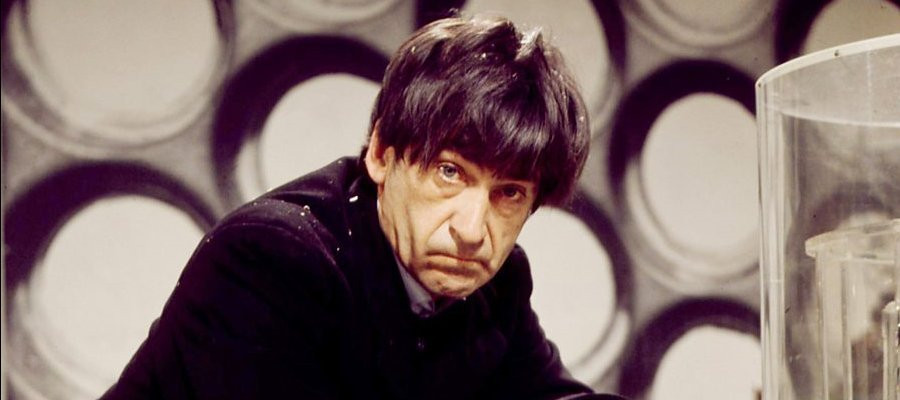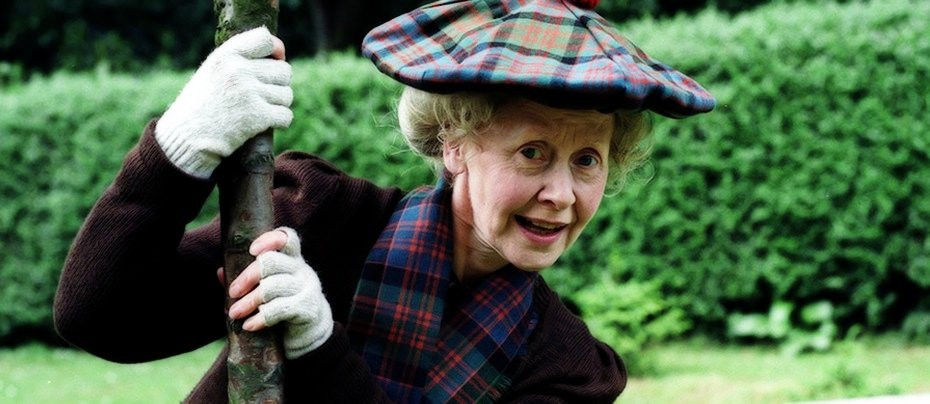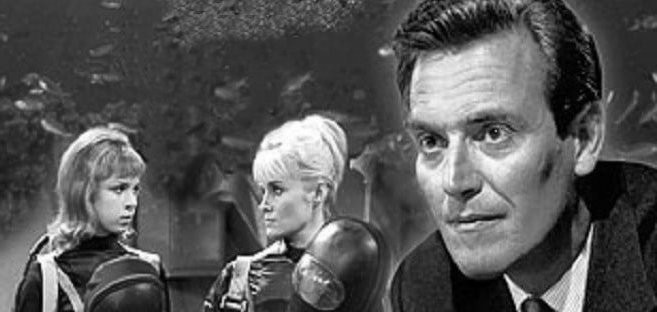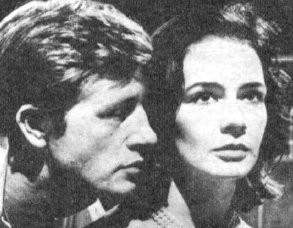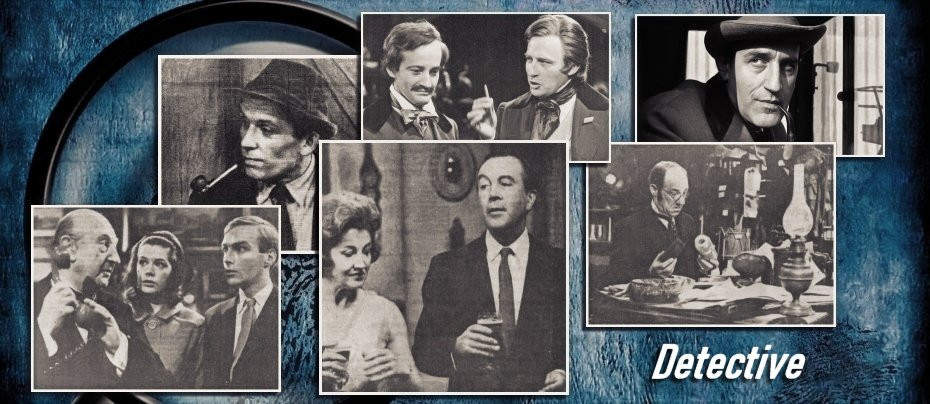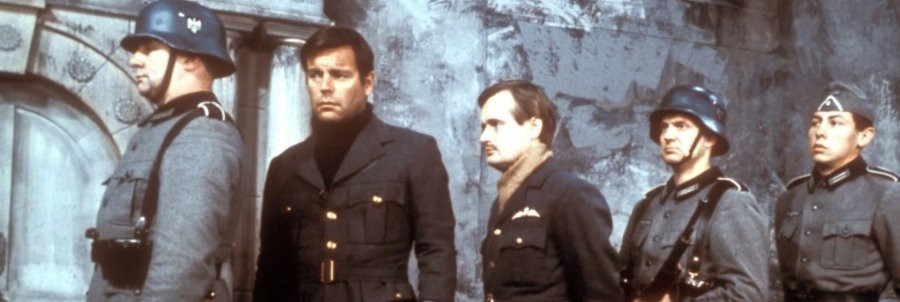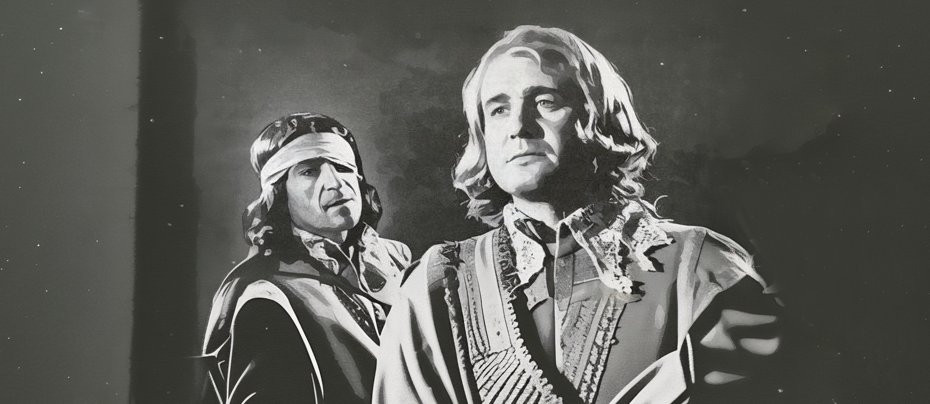
Sword of Vengeance
1962 - United KingdomReview by Laurence Marcus
Sword of Vengeance is a gripping historical drama that explores the brutal religious wars of 17th-century France. The story is set in June 1629, shortly after a hundred years of violent conflict between Roman Catholics and Protestants has finally ended. King Louis XIII, the Catholic ruler, has secured a decisive victory, and a fragile peace now exists. However, beneath the surface, deep animosity still lingers.
One such source of hatred is Danadieu (played by Richard Johnson), a Huguenot nobleman living in a small northern village. Despite the declared armistice, he remains consumed by bitterness. Six years earlier, while he was away fighting, his village endured a horrifying massacre. King Louis' troops attacked, burning the local church and killing scores of women and children, including Danadieu's wife. From that moment, Danadieu has been driven by a singular obsession: revenge.
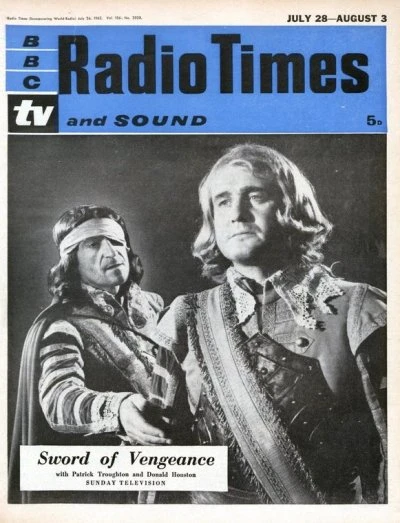
His chance for vengeance presents itself unexpectedly on a stormy night when two of the king’s couriers, Lavalette and Du Bosc (played by Donald Houston and Patrick Troughton), arrive at his chateau. They seek refuge under a flag of truce, and by the customs of the time, Danadieu is compelled to offer them hospitality. Initially, he plans to treat them with the civility expected under such conditions, despite his hatred for the crown.
However, tensions rise when his daughter, Judith (Valerie Sarruf)—one of the few survivors of the massacre—recognizes one of the couriers. She identifies him as the man responsible for torturing and killing her mother. This revelation shatters the fragile civility and rekindles Danadieu's long-held thirst for vengeance, setting the stage for a dramatic confrontation.
This Sunday Night Theatre production by the BBC was an English version by playwright, producer and translator Kitty Black of the 1953 play Donadieu by Austrian playwright Fritz Hochwälder, whose many works were adapted for television. At the age of 19, he wrote his first radio plays and dramas. In 1938, after the occupation of Austria, he emigrated to Zurich, Switzerland. Due to a ban on work, he was no longer allowed to practice his learned profession (he was an upholsterer by trade) and his "hobby", writing, became the basis for his professional development. He received numerous awards for his works: the Grillparzer Prize in 1955, the Literature Prize of the City of Vienna in 1956 and the Grand Austrian State Prize for Literature in 1966.
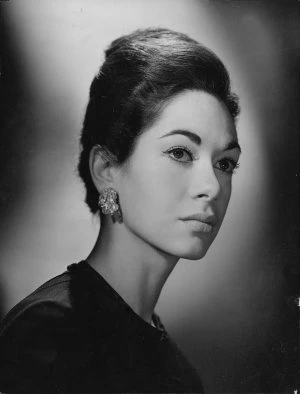
Actress Valerie Sarruf, who was making her television debut in this production, was born on 14 April 1940 in Lebanon. Her father was the Vice-President of the American University in Beirut, and she came to the UK in 1955, spending a year at boarding school. Then came drama and after three years at RADA she joined up with the Manchester Library Players and then went on to the Bristol Old Vic where she was 'discovered' by The Sword of Vengeance producer/director Rudolph Cartier. Apart from speaking fluent English - her mother lived in England for 25 years and the family spoke English at home in Beirut - Sarruf spoke Arabic and French. She went on to appear in, among other productions, The Avengers (1962), a 1964 series of The Count of Monte Cristo, All Creatures Great and Small (1980), The Crown (2020) and The Great Escaper (2023).
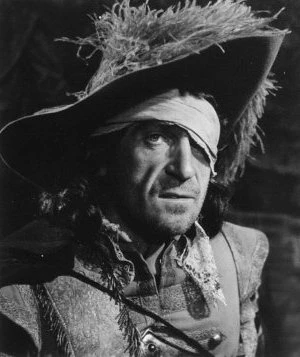
Critic Peter Green writing in the Wolverhampton Express and Star wrote that the play was "too extrovert a piece for television." He went on to observe that "It smacked too heavily of melodrama and failed to involve one in religious conflict." The only saving grace for it was, he wrote, Patrick Troughton whose character had "flesh on the bones." Mind you, his preferred choice of viewing that night was The George Mitchell Choir.
Seen this show? How do you rate it?
Seen this show? How do you rate it?
Published on October 21st, 2024. Written by Laurence Marcus for Television Heaven.


